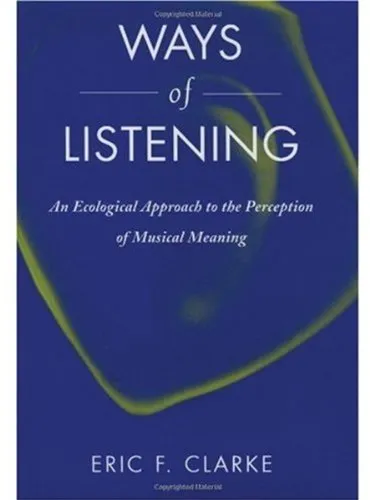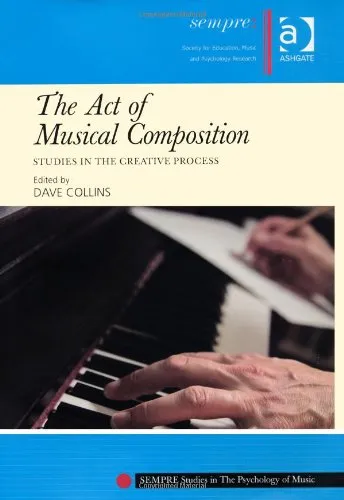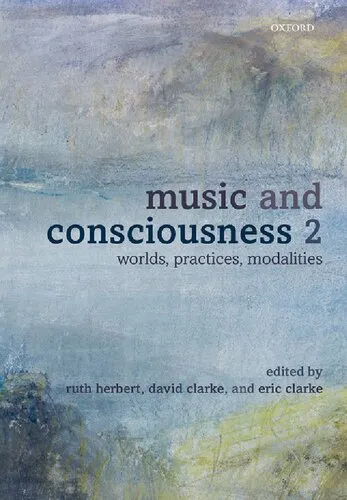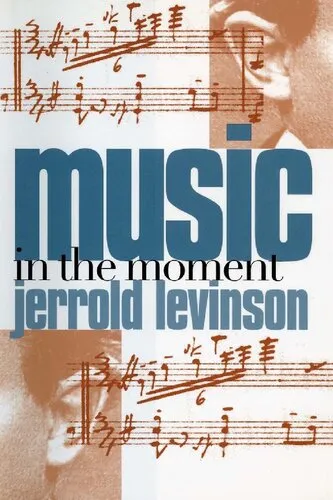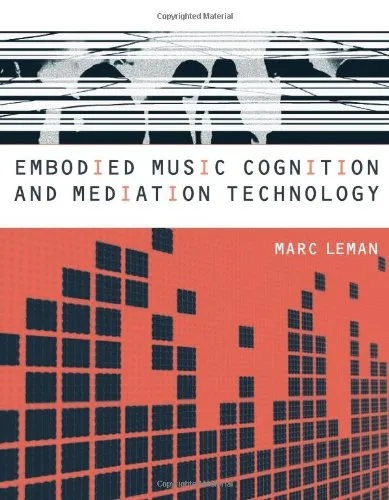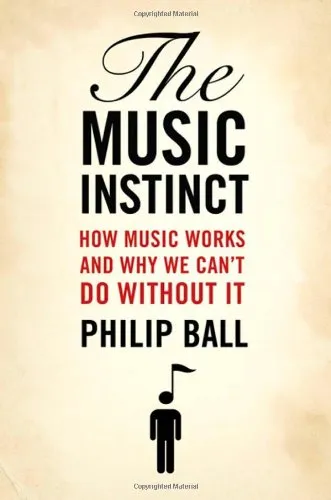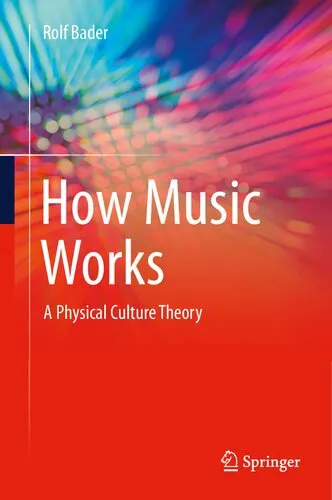Ways of Listening: An Ecological Approach to the Perception of Musical Meaning
4.0
Reviews from our users

You Can Ask your questions from this book's AI after Login
Each download or ask from book AI costs 2 points. To earn more free points, please visit the Points Guide Page and complete some valuable actions.Related Refrences:
Introduction to "Ways of Listening: An Ecological Approach to the Perception of Musical Meaning"
"Ways of Listening: An Ecological Approach to the Perception of Musical Meaning" by Eric F. Clarke offers a groundbreaking perspective on how humans perceive and interact with music. This book redefines traditional approaches to music perception by integrating ecological principles, grounding musical meaning in the listener's embodied experiences and environment. It straddles the boundaries between musicology, psychology, philosophy, and cognitive science, making it an essential text for anyone seeking a deeper understanding of how music resonates with us on a profound level.
Departing from purely formalist or culturally relativistic approaches, Clarke introduces the notion that music perception is an active and dynamic process shaped by the interplay between the listener, the music, and the context within which this interaction occurs. Through this lens, music is not merely an abstract art form confined to theoretical structures but a vibrant, lived experience rooted in human action and purpose. This book presents a compelling argument to rethink what it means to listen, analyze, and derive meaning from music.
Detailed Summary of the Book
The book is organized into several chapters, each of which expands on key concepts of ecological psychology and their relevance to music perception. Clarke draws inspiration from the ecological approach of J.J. Gibson, emphasizing the relationship between perception, action, and environment. He argues that musical meaning arises from a listener's engagement with the environment and the music's affordances—opportunities provided by music for particular actions or experiences.
In the early chapters, Clarke outlines the historical context of music perception theories, revealing the limitations of both abstract formalist and sociocultural approaches. Instead, he advocates for perceiving music as an experiential phenomenon. He then delves deeply into how listeners actively shape their experiences, responding not just to the sounds but also to memories, expectations, and emotions.
Later chapters focus on how context—whether social, cultural, or physical—affects how music is experienced and interpreted. Clarke explores diverse scenarios, from live performances in concert halls to solitary listening via headphones, and demonstrates how these differing contexts influence the listener's perception of musical meaning.
By integrating examples from classical, jazz, popular, and experimental music, Clarke builds a richly detailed argument in favor of adopting an ecological perspective. His exploration includes vivid case studies and empirical data that showcase the symbiotic relationship between musical structures, environmental stimuli, and human interpretation. In doing so, he provides compelling evidence for his ecological framework as a holistic approach to understanding the nature of music perception.
Key Takeaways
- Music perception is an active interaction between the listener, the sounds, and the environment.
- Musical meaning emerges from the affordances offered by the music within specific contexts.
- Listeners' prior experiences, emotions, and cultural understanding play a critical role in how they interpret music.
- The ecological approach challenges traditional formalist and relativist frameworks, offering a fresh and integrative way of exploring music perception.
Famous Quotes from the Book
"Music, in its essence, is not a thing but an event—a moment of lived experience profoundly shaped by the world in which it occurs."
"Listening is not a passive act but an act of discovery, shaped by the encounter between sound and perception."
"The meaning of music is as much in the ear of the listener as it is in the notes themselves."
Why This Book Matters
"Ways of Listening" is a pivotal piece of scholarship because it bridges gaps between disciplines while tackling a subject central to human culture: music. By adopting an ecological framework, Clarke challenges and expands traditional methodologies in musicology and cognitive science alike. His ideas inspire readers not only to understand music differently but also to approach listening itself as a transformative practice.
This book is essential for students, researchers, and practitioners from diverse fields such as music theory, psychology, and philosophy. It provides tools to approach the intricacies of musical meaning while emphasizing the individual's active role in shaping their musical experiences.
Ultimately, Clarke prompts us to reflect on the deep connections between sound, emotion, and the environments we inhabit. He reminds us that music is not just a product to be consumed, but an event that can influence and reflect our lived realities. Whether you're a musician, a scholar, or simply a curious listener, "Ways of Listening" challenges you to expand your understanding of what music means—and why it matters.
Free Direct Download
You Can Download this book after Login
Accessing books through legal platforms and public libraries not only supports the rights of authors and publishers but also contributes to the sustainability of reading culture. Before downloading, please take a moment to consider these options.
Find this book on other platforms:
WorldCat helps you find books in libraries worldwide.
See ratings, reviews, and discussions on Goodreads.
Find and buy rare or used books on AbeBooks.
1337
بازدید4.0
امتیاز0
نظر98%
رضایتReviews:
4.0
Based on 0 users review
Questions & Answers
Ask questions about this book or help others by answering
No questions yet. Be the first to ask!
